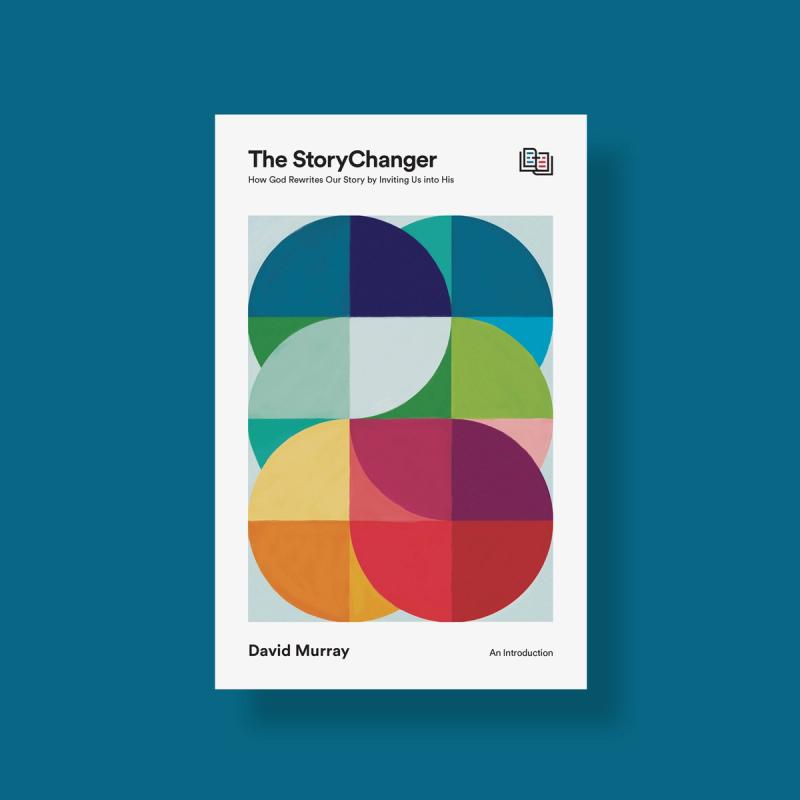The battle of ideas is over. We no longer live in an age of reason but an age of narratives. The battle of stories is just beginning. While the church wrestles with the ship’s wheel and tries to navigate this new current, we need faithful pastors to give us our bearings. David Murray proves an admirable captain with his new work, The StoryChanger.
Before we get into the content of this book, the most important contribution Murray makes is philosophical. He is engaging postmodern paradigms rather than simply willing them to not be true. The subtitle for the book aims for the forehead of our culture: “How God Rewrites Our Story by Inviting Us into His.” Clearly, this book will not be about logical syllogisms or proofs for the resurrection (as significant as those are).
This is not a trite, “share your story” sort of Christian living lite. Murray does not use experience as a substitute for truth. He is using truth as a substitute for experience. Nowadays people care less about what is true in the abstract, and more about what shows itself true by lending meaning to their life. Murray takes up the gauntlet. “You want something that makes sense of your story? Sit down and let me tell you about the story of the world.”
This book is not only relevant because it philosophically stands athwart so many Christian attempts to be relevant, but it is remarkably pastoral. I don’t know about you, but I love books by those who feel like your friendly neighborhood Spiderman (ahem, I mean pastor). Even in Reformed circles, we are deluged with self-serious sages who offer us wisdom not from deep wells but from brief skinny dips in the pool of life.
Martin Lloyd-Jones once shared a story about three pastors who attended a newbie’s first sermon. The first thought it was good and the second agreed. The third said, “Aye, but he has not yet suffered.” David Murray has suffered. If you doubt it, go read his earlier book, Refresh. As Spurgeon would say, he has dipped the pen in his own heart. He has reached his own limits. He is ready to tell us about the Lord.
A final strength of this book is found in its formatting. True to its story-telling theme, each chapter examines the biblical story, the reader’s story, and concludes with a reflection from the author’s story. As a result, there are constant rest areas for the reader. Sections are usually no longer than three paragraphs. Along the way, quotes and questions for the readers are blocked off in blue. Frankly, this is a mercy among so many overly dense tomes claiming to be for regular Christians. While we all lament our goldfish-like attention spans as modern readers, we cannot simply ignore the struggle. Readers can commit to another page or paragraph far easier than another chapter.
With this innovative formatting, however, comes the chief weakness of the book—a lack of flow. Too-frequent rest stops in the form of unnecessary questions form unnecessary interruptions for the reader. Let’s take one example from page 68. Murray strongly closes a section on the descending and ascending paradigm of Jesus’s saving work with these sentences: “Christ’s U-life is the model and fuel for our U-life. We’ll therefore begin with a look at Christ’s U-life.” The next section is entitled “Christ Is a Perfect U.” Brilliant. I’m excited to see how Murray unpacks the conclusion to the prior section.
Except, he then inserts between the natural sections a reflection question: “How do I know what Christ’s U-life looks like? Thankfully, we have his U-book to show us.” This might be great material for another section within the chapter, but it is utterly unnatural at this point. Are we about to learn about the life of Christ or about the primacy of the Word? Such small but distracting interruptions occur throughout the book. For a book that is refreshingly conversational, these misplaced questions feel like conversation killers.
But my critique (quite naturally) comes from the position of a critic. Most readers of this book will not be concerned with such minor faux pas. They will be thankful for the conversation, period. And that is one of the strengths of this book: It is one of the most accessible expressions of biblical truth for this postmodern age that I have yet seen. I hate it when fellow Christians give unbelieving friends a book to forego a conversation. Let’s give unbelieving friends this book to foster a conversation.
That’s why this book is imperfectly revolutionary. Murray was probably thinking about his own Midwestern congregants when he wrote this book, but intentionally or not, he happened to capture the broader culture as well. Perhaps this is what happens when one dips the pen in their own heart—that individual person comes out with a story that translates across broad cultural lines.
Many books are similar to this one—both thematically and rhetorically—and many more will follow. But this book is more than meets the eye. It reflects the tidal shift from a reason-based culture to a narrative-based culture. Calvin, Berkhof, and Bavinck will still shape the minds of pastors and students of theology. But these students and pastors must translate profound ideas into the suffering story of our culture. Murray is an apt teacher.
Give this book to your pastor, especially if he’s feeling disillusioned. Put it in the hands of Sunday school teachers and new Christians. Hand it out to those who are cautiously approaching the Christian faith—as a basis for engagement rather than avoidance. The future of Christian writing and teaching may be shaped more by such theologically informed pastors than by pastorally informed theologians. Murray will show you why this future is a bright one.
Stephen Roberts is a US Army chaplain and has written for The Washington Times and The Federalist.



